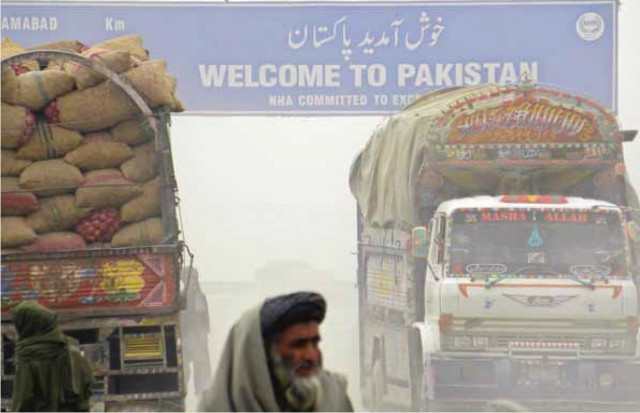Pakistan has resumed Afghan transit trade in stages after a 10-day suspension, following a “temporary ceasefire agreement” reached with the Afghan Taliban government in Doha. Mine clearance of 300 vehicles has begun. Around 300 vehicles were stuck at various times during the suspension.
Commercial transit operations have been restored via the Chaman route. The Directorate of Transit Trade (Customs) has issued a detailed directive specifying that cargo operations will be carried out in three phases.
According to the directive, normal transit trade operations will resume on a “first in, first out” (FIFO) basis once the existing backlog is cleared.
In the first phase, nine vehicles returned from the Friendship Gate due to the border closure will be cleared. These vehicles will be reweighed and scanned, and in case of anomalies, a 100% inspection will be carried out.
Read: FBR suspends Afghan transit trade due to border unrest
In the second phase, 74 vehicles returned from the NLC border terminal will be processed. These will also be re-weighed and digitized, and any inconsistencies will be investigated further.
In the third phase, 217 vehicles currently parked at the Halting Yard will be allowed to cross the border.
The directive also states that photographs of all returned or arrested vehicles will be taken at the Friendship Gate and recorded to ensure transparency and proper documentation.
Read: Explained: Pakistan-Afghanistan border conflict
The resumption of transit trade is expected to bring relief to traders, transporters and freight operators, who suffered significant losses during border closures. According to officials, security and inspection measures have been further strengthened upon resumption of business operations to prevent smuggling or illegal trade.
Tensions between Pakistan and Afghanistan recently escalated after Afghan firing at several sites in Khyber-Pakhtunkhwa, prompting rapid military retaliation. Several Afghan posts were destroyed and dozens of Afghan soldiers and militants were killed.
Also read: Pakistan, Afghanistan agree to immediate ceasefire during Doha talks
Pakistani officials said on October 11 that Pakistan had closed crossings along the 2,600 km (1,600 mile) border with Afghanistan. The two main border crossings with Afghanistan, at Torkham and Chaman, and at least three minor border crossings, at Kharlachi, Angoor Adda and Ghulam Khan, were closed, local officials said.
On October 19, Pakistan and Afghanistan agreed to an immediate ceasefire during negotiations in Qatar. The two sides agreed to meet on October 25 in Istanbul to discuss “detailed issues.”
The Chaman border is considered the most important land trade route between Pakistan and Afghanistan, through which dozens of trucks and goods pass between the two countries daily. The restoration of transit trade is expected to revive cross-border commercial activity and improve bilateral trade relations.




